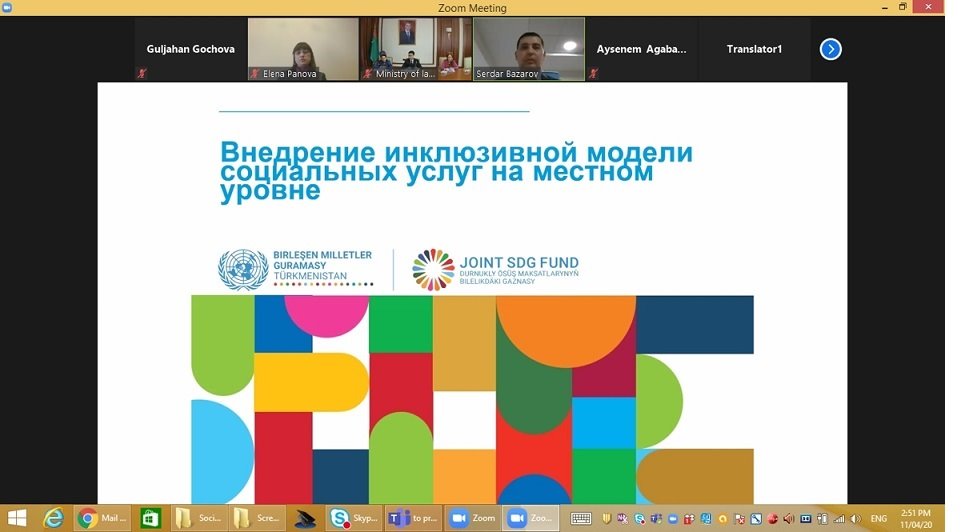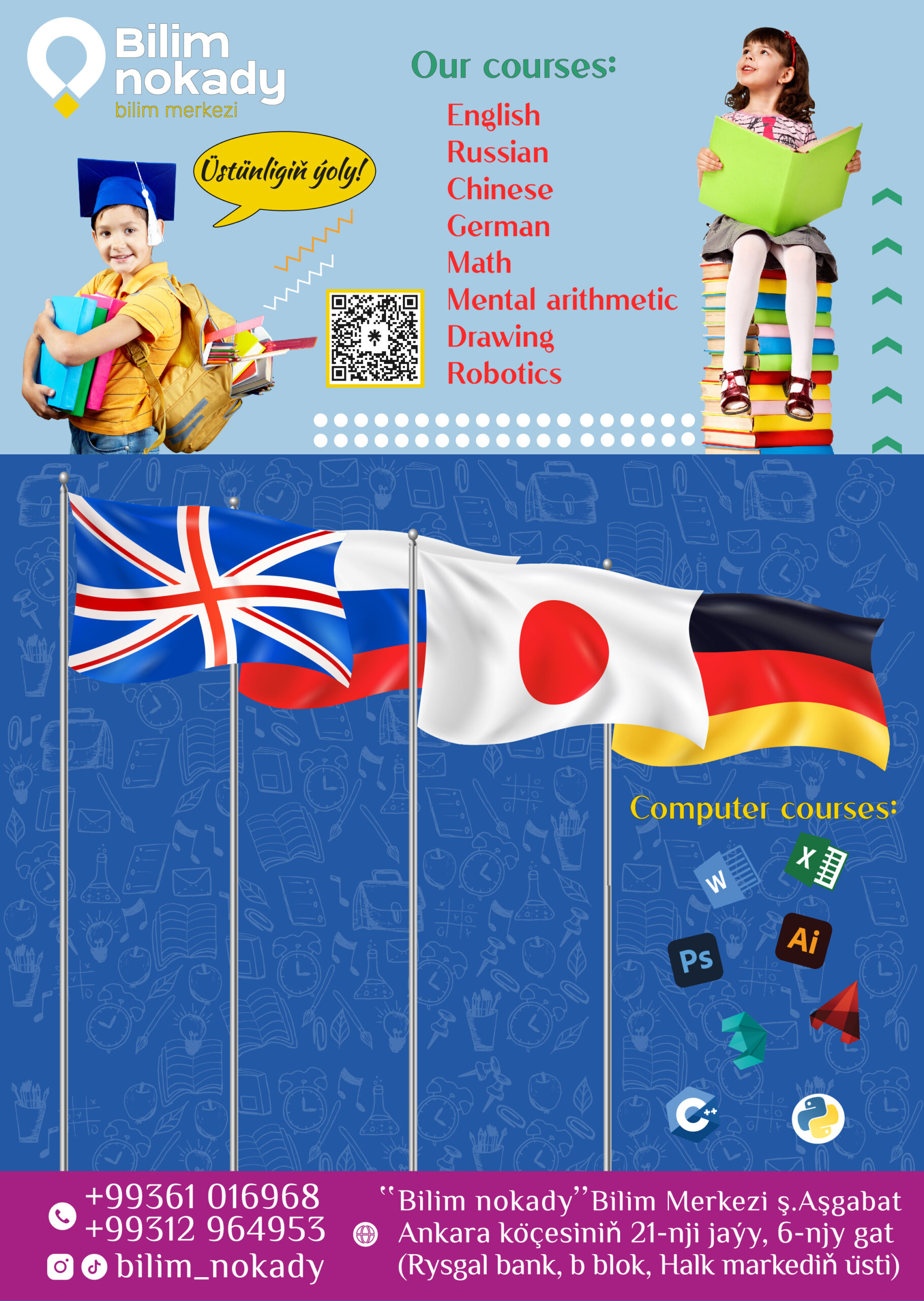The second meeting of the Steering Committee of the Joint Programme on inclusive, quality community-based social services was convened online. It was co-chaired by Mr. Muhammetseyid Sylapov, Minister of Labour and Social Protection of Population of Turkmenistan and Ms. Elena Panova, UN Resident Coordinator in Turkmenistan.
The meeting brought together Deputy Ministers from a number of ministries, Heads of participating UN agencies, and representatives of civil society organizations to review the implementation of the programme for the last months and discuss important issues lying ahead.
The progress on the development of inclusive community-based social services model within the framework of the Joint Programme was presented to the members of the Steering Committee. Participants were informed about preliminary results of the legislation review governing social services in the country. They were also informed about the analysis of social service inventory that provided a baseline on most governmental and non-governmental social service providers throughout the country.
Ms. Elena Panova mentioned in her welcoming speech: “This is the first joint UN effort to offer a holistic approach to transforming the delivery of social services. With the introduction of inclusive community-based social services, this Joint Programme leads to complex changes in the social service provision system through social protection, education, health and employment sectors”.
The Steering Committee members agreed on introducing amendments to the Terms of Reference of the Steering Committee to include National Red Crescent Society of Turkmenistan to its membership and the Terms of Reference of the Expert Working Group to include relevant civil society organizations providing social services. These are “Yenme”, “Keyik Okara” and Deaf and Blind Society of Turkmenistan. The importance of sustainability of the UN- Turkmenistan Joint Programme on social services in all its components, especially securing resources for the newly created social work positions from the state budget, close cooperation with national partners in human resources capacity building trainings for the social work specialists and allied workforce, working on the standard operating procedures, and curriculum building was highlighted by the Heads of participating UN Agencies: UNICEF, UNDP, UNFPA and UNODC.





Comments